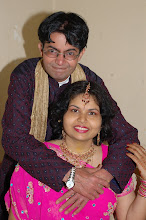Ayurved ("the science of life"), the traditional medicine of India, is not a science artificially imposed upon living beings. Ayurveda is made up of two Sanskrit words: “Ayu” which means life and “Veda” which means the knowledge. To know about life is Ayurveda. Ayurved is based upon a profound understanding of the spirit of life and the movement of its force. Ayurved has a holistic approach to individuals wherein it does not differentiate between the body and the mind as they are interrelated and integrated .So what happens to one influences the other.
It is a science based upon the observation of living being and their actual reaction to their environment. Many scholars believe that knowledge of Ayurveda spread out from India and influenced the ancient Chinese system of medicine, Unani medicine, and the medicine practiced by Hippocrates in Greece. It also emphasizes on preventive health care.
Many Ayurvedic practices were handed down by word of mouth and were used before there were written records. Two ancient books, written in Sanskrit on palm leaves more than 2,000 years ago, are thought to be the first texts on Ayurveda--Charaka Samhita and Sushruta Samhita.
Ayurveda views a person as a unique individual made up of five primary elements. The elements are ether (space), air, fire, water, and earth. Each element is represented in the human body. When any of these elements are present in the environment, they will in turn have an influence on us.
These elements combine to form 3 doshas.
Vata Dosha: Ether and Air come together to form Vata.
Vata governs movement and is responsible for directing such functions as the heart beat, respiration, circulation, movement of food in digestion and the nerve impulses. Too much Vata can lead to symptoms such as high blood pressure, while too little can result in constipation. Emotionally it is responsible for such positive emotions as creativity and flexibility and its' negative aspects are fear and anxiety.
Pitta Dosha: Fire, plus water come together as Pitta
Pitta governs transformation, perception and metabolism and it is responsible for such functions as transformation of foods into nutrients, digestion and temperature. Too much Pitta can lead to symptoms such as ulcers and acne, while too little can result in indigestion and obesity. Emotionally it is connected with courage, ambition, anger and pride.
Kapha Dosha: Water and Earth make the dosha Kapha
Kapha governs structure and lubrication of the body and is responsible for growth and immunity. Too much Kapha can lead to symptoms such as a runny nose or productive cough, while too little can result in bone problems. It governs emotions such as love and devotion, greed and jealousy.
Everybody is born with a unique combination of these three doshas and this is termed as their prakriti or constitution.
There are 8 branches of Ayurveda.
Kayachikitsa (Internal medicine): This branch deals with treatment of the entire being, mind, body and spirit.
Shalakya Tantra( ENT and Cephalic diseases): This branch deals with the diseases of ear, nose, throat and head and their treatments including special techniques for curing these diseases.
Shalyatantra (Surgery): Maharishi 'Sushruta' is the first surgeon who is also the author of Shalya Chikitsa, the foremost specialty of Ayurveda. The specialty of Shalya covers topics such as anatomy, Physiology, surgical treatment of conditions.
Agadatantra (Poisoning and Toxicology): This branch deals with the toxins from all sources, including air and waterborne toxins.
Kaumarabhritya (Pediatrics): This branch deals with the prenatal and postnatal baby care as well as the care of a woman before and during pregnancy and various diseases of childhood.
Rasayana (Rejuvenation): This branch which is unique to Ayurveda, deals with prevention of diseases and promotion of a long and healthy life. It is concerned with healthy diet and codes of behavioral conduct.
Vajikarana (Aphrodisiacs): This branch deals with the means of increasing sexual vitality and efficiency.
Bhutavidya (Psychology): The study of mental diseases and their treatments. Treatment methods include medicines, diet regulation and yogic methods for treatment of mental diseases.
There are 6 tastes according to Ayurveda that should be included in daily diet.
| Sweet | wheat, milk, dates, rice. |
| Sour | yogurt, tamarind, lemon. |
| Salty | sea salt, kelp, rock salt. |
| Pungent | onion, radish, chilly, Ginger Root |
| Bitter | dandelion root, bitter melon, rhubarb root. |
| Astringent | plantain, pomegranate, apples |
http://www.isamaj.com/indinfo/ayurved.htm

0 comments: